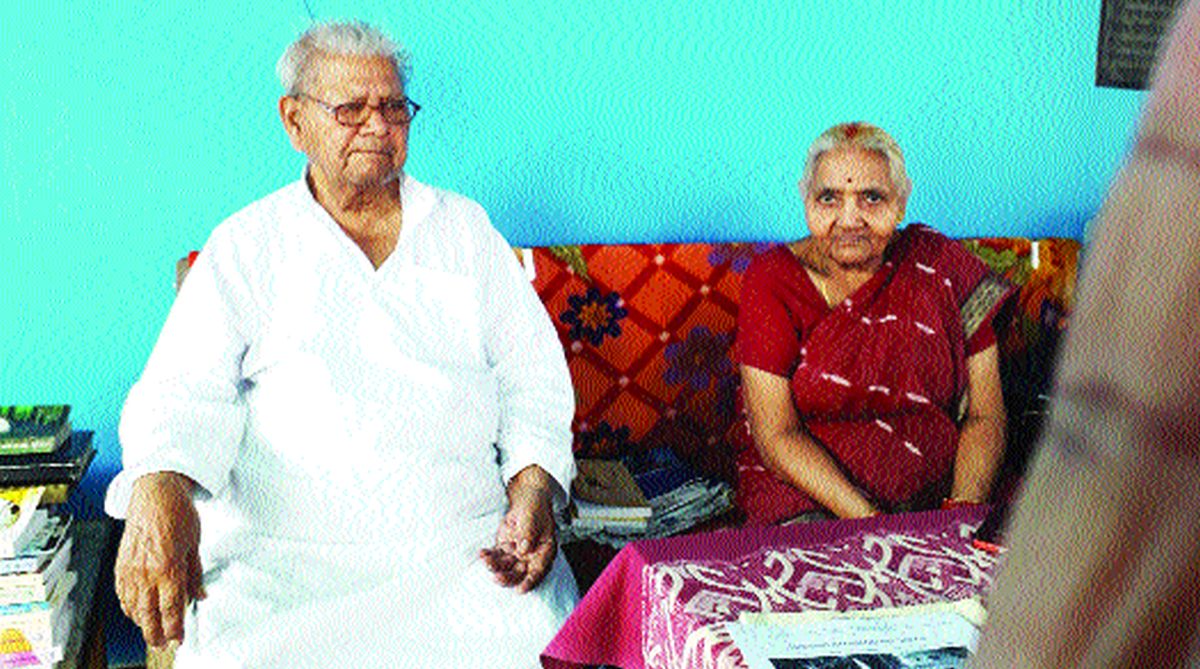Odisha police honour good samaritans after kidnapped minor rescued unharmed
Two miscreants had abducted the girl while she was returning home with her grandmother from tuition classes.
“These children are from the economically weaker section of the society. Either they are orphans, or their parents are too poor to provide for their basic needs. They come from places as far as Nepal, Mizoram as also from Uttar Pradesh” says Mr Dharam Dutt.

Mr Dharam Dutt and his wife.

It is this indomitable spirit which has encouraged and pushed him to work relentlessly for the uplift and welfare of destitute children presently numbering around hundred.
Advertisement
These children, mostly from rural areas, are housed in the Motinagar-situated ‘Shrimad Dayanand Bal Sadan’ which was founded in 1915. Food, lodging and education are provided free of cost to the residents of the child care centre.
Advertisement
Badhta Kadam in Raipur | Non-state actors on welfare march
Says Mr Dharam Dutt: “These children are from the economically weaker section of the society. Either they are orphans, or their parents are too poor to provide for their basic needs. They come from places as far as Nepal, Mizoram as also from Uttar Pradesh”.
The children are in the age group of 5 to 7 years. They stay in the sadan till they attain the age of 18, Mr Dutt said.
Once in the sadan, the children have to abide by its rules and regulations which are on the lines of a ‘gurukul’. At 6 a.m., their day begins with the recitation of mantras and performance of ‘hawan’. From 7 a.m. they have yoga sessions. From 11 a.m. to 4 p.m. their studies begin.
Vijay Jardhari in Uttarakhand | A battle to preserve seeds
Vikas Chandra | Battling to save a river
The school education system up to class eight is affiliated to the Uttar Pradesh Board of Secondary Education. For higher studies, the girls of the sadan are enrolled in a girls’ college and the boys are admitted to a college for boys, both situated in Lucknow.
While presently the emphasis in the sadan is to make the children economically independent by pursuing Arya Samaj practices, voices are being raised that the kids’ energies should be channelised for earning a livelihood in pace with the changing times and the new job avenues coming up. Mr Dutt, however, says these children earn a reasonable amount for their sustenance through “purohitgiri”.
Prachi Deo | Bringing knowledge to the afflicted
Mittal Patel | Giving nomads an identity
Mr Dutt’s association with the child care centre dates back to the early 1990s. Having retired from the post of joint secretary in the State Electricity Board, he started visiting the sadan with food for the children. It was during one such visit that the children requested him to teach them, which he accepted. There was no looking back.
From holding classes, his involvement in the affairs of the centre began to take deeper roots. He diverted a major part of his savings to the construction of classrooms, hostels, library and multi-purpose halls. Queried if he sought aid from the government for the functioning of the sadan, Mr. Dutt said “no” quite firmly. The sadan is being run purely through donations, he added.
Mr Dutt sits in the office daily to oversee the functioning of the organization and is assisted by his wife Omeshwari.
Maqbool Ahmed Mansoori | Providing one square meal a day
Bhan Singh Jassi | A Santa for slum children
READ | When communities feed their needy
READ | Nirmal Chandel: Moving mountains in Himachal
Advertisement